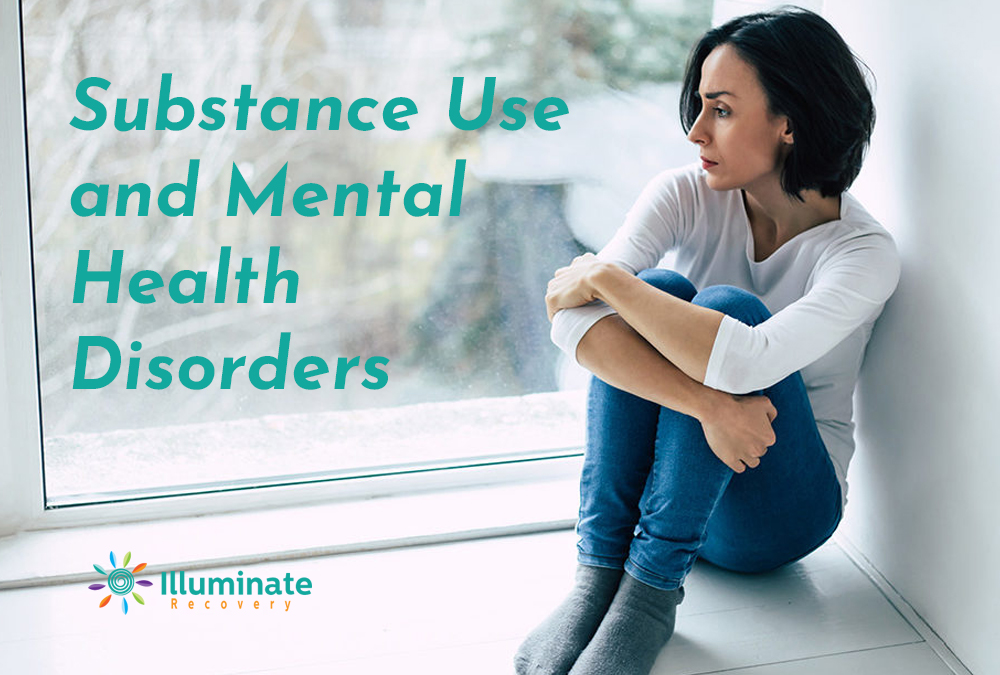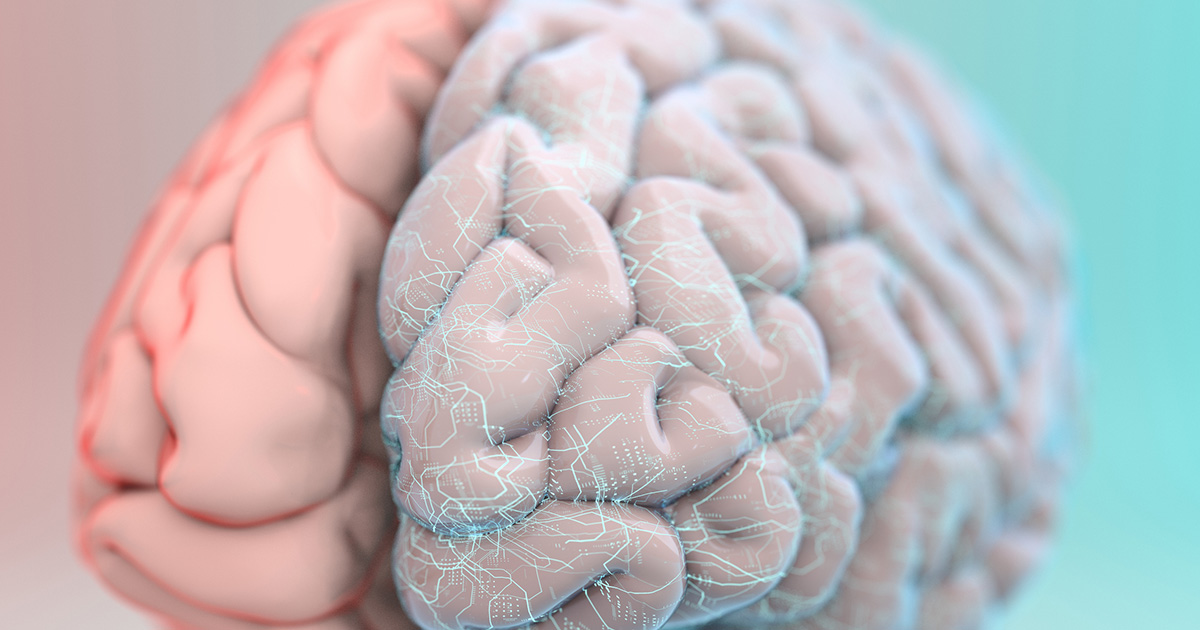 Photo From Getty Images
Photo From Getty Images
Originally Posted On: https://illuminaterecovery.com/blog/substance-use-and-mental-health-disorders
In the not-so-distant past, mental health disorders were surrounded by a haze of stigma—people perceived to be experiencing mental health disorders were often treated differently than peers. They encountered additional roadblocks to living a normal life in the process. Today, while American society still has not quite mastered its treatment of individuals with mental health disorders, it has made significant strides in the right direction. Among them is the realization of just how many Americans live with mental health disorders every day.
Today, nearly one in every five Americans lives with one or more mental health disorders—approximately 47 million people in 2017. Of those, 11.2 million (or about 4.5% of all adults) were considered serious mental illnesses. While the specific contributing factors of these illnesses can vary, researchers have identified one crucial link to another disorder that may help us understand and treat some individuals—substance use disorder (SUD).
What Is Substance Use Disorder?
Many people choose to use substances like alcohol or recreational drugs in social situations, and for some, occasional recreational use never goes any further. For others, however, the chemical effects the substance has on the brain are so appealing that use becomes increasingly frequent. The individual begins to depend on the use of the substance to feel good, then begins to rely on the substance to feel normal. Over time, an individual with substance use disorder loses the ability to control the use and continues to use the substance regardless of the adverse effects their behavior is having on school, work, finances, and social relationships.
Another road to SUD begins with prescription pain medications like some opiates. Over time, some individuals start to build up a tolerance to pain medications used to relieve pain after a medical procedure before eventually becoming dependent on the medication to feel normal. Prescription medication misuse can lead to the use of cheaper opioids such as heroin and can have the same adverse effects as dependence on other recreational substances.
After some time, people experiencing SUD begin to feel worse while not using the substance than they do while using. Withdrawal from many commonly abused substances can cause severe physical symptoms. As a result, halting substance use should take place under professional supervision.
What Is the Link Between Substance Use Disorder and Mental Health Disorders?

Photo from Getty Images
While around 20% of American adults experience mental health disorders, the number of those who use substances is remarkably higher—about 60% or nearly 140 million people over the age of 12. Of these, just over 20 million people experienced actual SUD due to the use of an illicit drug or alcohol. However, these raw numbers are not nearly as telling as the link that occurs between the two conditions.
In fact, according to the National Alliance on Mental Illness and the Journal of the American Medical Association, about 53% of individuals who experience SUD due to illicit drug use and 37% of those with SUD due to alcohol use also have a mental health disorder. The correlation is significant in reverse, as well—NAMI reports that 29% of all individuals with a mental illness also experience SUD, and nearly 50% of those with severe mental health disorders also have SUD. The connection is clear—these two conditions are often co-occurring disorders and can serve to exacerbate one another if not appropriately treated.
Addiction and Co-occurring Mental Disorders
Of course, it isn’t enough to know that SUD and mental health disorders often occur together—we must understand what leads to the connection to treat either condition. While one disorder does not entirely cause the other, the two are deeply linked in many essential ways. Consider these connections:
- Some individuals use substances to self-treat mental health disorders. Diagnosed or undiagnosed, many mental health disorders can produce undesirable symptoms, mood alterations, or increase the presence of difficult emotions—many people use substances to combat those effects. However, substance use comes with its negative symptoms.
- Substance use can worsen mental health symptoms. Whether used to self medicate or for other reasons, substance use can cause mental health symptoms to worsen. Also, substance use can alter or eliminate the effects of mental health medications meant to treat the original disorder and make users less able to manage symptoms.
- SUD can exacerbate the risk of mental health disorders. While mental health disorders are caused by a complicated mixture of factors, including genetic, physical, and environmental factors, substance use increases risk factors. The resulting combination may lead to new or more severe mental health issues.
Identifying SUD and Mental Health Disorders

Photo from Getty Images
Unless an individual has received separate diagnoses for both SUD and a mental health disorder, it can be difficult to identify both when the two conditions are co-occurring. In some cases, the symptoms of each can mirror one another, while in others, one disorder simply serves to intensify symptoms of the other. To make matters more complicated, the general symptoms of the various mental health disorders and substance use disorders vary. For example, a person experiencing alcohol abuse and PTSD will likely exhibit markedly different symptoms than another experiencing opioid use and bipolar disorder.
In addition, many individuals with a dual diagnosis of both mental health disorders and SUD are hesitant to acknowledge one or both disorders. People may refuse to admit their dependence on a substance or be ashamed to admit signs of mental health disorders like anxiety and depression. However, dual diagnosis treatment that addresses both conditions is key to recovery.
Dual Diagnosis Treatment
While traditional rehab centers often address the symptoms of substance use disorders, addiction treatment alone cannot adequately address other underlying mental health disorders. For this reason, it’s crucial for individuals who experience both commonly co-occurring conditions to seek dual diagnosis treatment. By treating substance use disorders and mental health disorders simultaneously, an integrated team can help the individual attain long-term recovery.
Instead of focusing solely on addiction, dual diagnosis treatment makes use of an integrated model for the treatment of a co-occurring disorder. An integrated treatment model may include treatment resources such as:
- Psychiatric evaluation
- Drug or alcohol detox
- Individual and group therapies for both conditions
- Cognitive behavior therapy
- Twelve-step therapy
- Medication-assisted treatment for substance use disorders (MAT)
- Life skills resources
- Anger management therapy, and more, depending on the needs of each individual
Receiving Dual Diagnosis Treatment as Soon as Possible Is Key to Recovery

Photo from Getty Images
If you or a loved one are experiencing the life-altering effects of substance use disorder and one or more mental health disorders, seeking integrated dual diagnosis treatment is crucial to long-term recovery. Both disorders are completely treatable conditions, but attention to both is key to recovery. For that reason, finding a licensed, accredited dual diagnosis treatment center is of utmost importance.
Look for a center with experience treating your mental health disorder, with an on-site medical and mental health staff to assist you through recovery in both diagnoses. In addition, it’s vital to seek a center that helps teach coping strategies for both your substance use and mental health disorders—medical treatment and therapies can only go so far; for life-long recovery, learning how to continue coping is your best chance of achieving success.
There is hope for those with co-occurring mental health and substance use disorders, and it involves seeking integrated, dual diagnosis treatment as soon as possible. If you would like to talk to a professional behavioral health counselor, please give us a call or fill out this form. We can help you determine if our program is the right fit for you or your loved one.